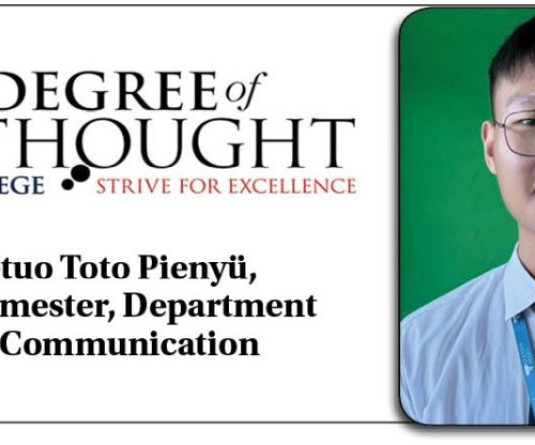
Portraying and capturing a realistic view of the world through the lens of magic and fantasy has been intriguing and amusing to feast on for a huge audience of readers. In magic realism, the mundane setting of life is invaded by some unbelievable phenomenon without making the text seem cartoonish or deranged. The foundation of magical realism is the presence of fantastical aspects in the real world and instead of creating new worlds, writers bring the magical elements of the real world to light. Characters in magic realist literature regard magical occurrences as if they were commonplace. This blurring of the barrier between reality and fiction enables writers to address complicated subjects like identity, memory, history, and cultural heritage in symbolic and metaphorical terms.
Japanese writer Haruki Murakami, frequently combines existentialism, magical realism, and psychedelia in his writings. His books, "Norwegian Wood," "Kafka on the Shore," and "1Q84," have won him praise from readers all around the world and an avid readership. Murakami's work is distinguished by its dreamy ambiance, complex narrative, and examination of subjects such as romantic relationships, alienation, and the pursuit of purpose in contemporary society. Famous for his mysterious stories that deftly combine existentialism, magic realism, and cultural criticism, Murakami has made a name for himself in the book industry. It is clear from a study of Murakami's narrative devices, thematic diversity, and enduring influence that he is a visionary literary force in addition to a skilled writer. His writings continue to enthrall people everywhere and have had a big influence on modern literature. In his books, Haruki Murakami is well recognised for fusing fantastical aspects with everyday life, a technique that has come to be known as magical realism. In pieces such as "Kafka on the Shore" and "The Wind-Up Bird Chronicle," he blurs the boundaries between reality and fantasy by fusing magical events with ordinary living. Murakami distinctively blends the mysterious and the normal everyday life and mixes it with humor, grief and magic which makes it even more appealing for the readers and makes room for Murakami as a well-loved writer.
An excerpt from his collection of short stories 'Men Without Women' (Scheherazade), "Reality and supposition, observation and pure fancy seemed jumbled together in her narratives." This line solitarily sums up Murakami's style of writing making his own writing a genre in itself. He makes an impossible aspect of the mundane life magical without making the reader's question its absurdity. While his works are supremely philosophical with tints of the supernatural, there is no segregation or detachment from the human world making it completely pitch-perfect.
While in 'Kafka on the Shore', characters communicate with cats, rain fish from the sky, and entrances to alternate realities exist within everyday settings; parallel worlds, mystical Little People, and a sense of displacement from reality permeate in his novel, '1Q84'. In 'The Wind-Up Bird Chronicle', the protagonist's journey involves encounters with mysterious characters, dream sequences, and surreal events that blur the lines between the mundane and the magical. While less overtly magical, there are also elements of surrealism and symbolism in 'Norwegian Wood', such as the disappearance of Naoko and the haunting presence of Midori's father. These illustrations highlight Murakami's skill at deftly incorporating supernatural elements into his novels to produce tales that are both fanciful and profoundly grounded in the human condition. The dreamlike atmosphere in his works add to the magical environment that he has created where dreams and reality become intertwined, making it difficult for characters (and readers) to distinguish between the two. However, it is more than what meets the eye, Murakami employs magical aspects metaphorically to allude to deeper topics and feelings. Talking animals, for instance, could suggest the protagonist's inner problems or wants. Murakami frequently places his works in commonplace locales like Tokyo but adds supernatural elements that upend the order of things. For instance, in their daily lives, characters might come across talking animals or supernatural activity. His fictional characters normally respond to supernatural happenings in their lives with a sense of acceptance, as though these things are just silly parts of their world. This disdain for the supernatural plays a part in how easily magic is incorporated into the story.
Murakami is undoubtedly a genius and has widely deepened the genre of magic realism in ways of absurd intrigues and monotonous aspects of life. Murakami creates stories that connect with readers on a visceral and philosophical level by utilizing dreamlike atmospheres, symbolic imagery, and people that embrace the paranormal. He masterfully installs magic realism in his works seamlessly normalizing the blend of the magical with the ordinary, exploring themes of identity, memory and existentialism. Another factor that contributes to the successful exposition of magic realism in his works is Murakami's linguistic style, with an installation of lyrical and poetic beauty. His description of the strange and bizarre are so well detailed that it makes no room for doubt of the real and fantasy. Murakami's deft use of magic realism, a narrative method that blends supernatural aspects with everyday life, is central to his storytelling appeal. In contrast to conventional fantasy literature, which confines magical events to made-up worlds, Murakami skillfully weaves paranormal events into the fabric of daily life. His stories blend the fantastical and the everyday, enthralling readers with their sense of surprise and curiosity. From talking cats and parallel universes to mysterious disappearances and bizarre meetings, his stories blur the boundaries between the ordinary and the remarkable. These elements capture readers as they delve into the mysteries of his distinctively bizarre universes.
.
Degree of Thought is a weekly community column initiated by Tetso College in partnership with The Morung Express. Degree of Thought will delve into the social, cultural, political and educational issues around us. The views expressed here do not reflect the opinion of the institution. Tetso College is a NAAC Accredited UGC recognised Commerce and Arts College. The editorial team includes Chubamenla, Asst. Professor Dept. of English and Rinsit Sareo, Asst. Manager, IT, Media & Communications. For feedback or comments please email: dot@tetsocollege.org






